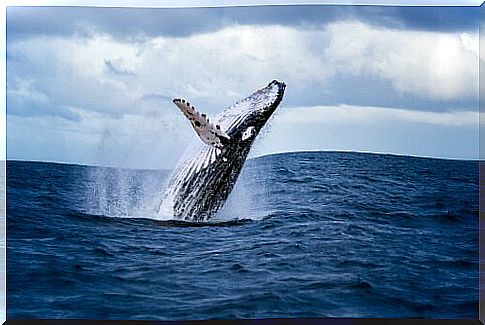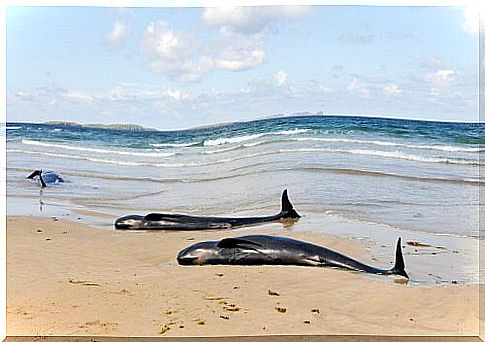Why Do Seismic Surveys Affect Cetaceans?

There is a lot of worrying news about the effects that seismic surveys have on cetaceans. These marine mammals are endangered by these extraction methods, which are banned in some places such as the Balearic sanctuary.
In this article we will try to understand why seismic surveys affect cetaceans.
What are seismic surveys?
Seismic surveys are said to involve cetaceans, but many people don’t really know what it is.
Seismic surveys are a method that allows you to locate marine oil or gas fields within a rock, in order to better exploit them.
During the mapping, the acoustic waves are emitted through compressed air cannons which come back carrying with them the information of the different layers of the seabed.
The devices used to emit these waves generate large sound intensities. These sound emissions affect the well-being, physiology or behavior of various marine organisms.

Do seismic investigations affect the life of marine animals?
Although in this article we will talk about how seismic surveys affect cetaceans, the truth is that they also affect other marine life, mainly fish. For this reason, numerous attempts have been proposed to block investigations in the Mediterranean.
Bony fish, that is, those that have bone spines instead of cartilage, are particularly sensitive to seismic investigations.
This is because they have a swim bladder, a gas-filled space that allows you to regulate the way they swim and their buoyancy.
Seismic investigations also affect the hearing of these animals, causing stunning and loss of the hearing, as well as buoyancy balance. These are disastrous effects on the ecosystem.
There are also negative economic implications: fishing-related activities have decreased between 30% and 50% in the regions where this type of seismic surveys are carried out.
Not only fish can be affected: sea lions, seals and walruses suffer from hearing loss and changes in behavior. Unfortunately, the effects on these animals have barely been studied.
In the case of sea turtles, their migration routes are affected and changes in their social behaviors occur. Giant squid can also be affected by injury to internal organs.

Do seismic surveys affect cetaceans?
Because of the way whales communicate with each other, it is impossible to deny that seismic surveys affect cetaceans.
We are talking about sound animals that need sounds not only to communicate, but also to be on guard or to hunt.
Thus, it was found that seismic investigations also affect cetaceans at the tissue level, causing an increase in gas bubbles to damage the liver, kidneys and blood supply.
The auditory structures are the most affected and even the bones that compose them can be fractured by vibrations. Wounds can turn animals into totally deaf beings, so species like the blue whale – which is solitary but reunites thanks to the verse – can remain totally alone for life.
Of course, even if the sound is distant and no physical damage occurs, these animals lose the ability to locate boats. They may also lose the ability to communicate due to background noise, as well as change migration routes and suffer from enormous stress.
Seismic surveys negatively affect cetaceans for various reasons. Investigations have shown that even in the Arctic region they could threaten ecosystems, so if we want to protect marine fauna, these activities must be banned, especially in protected areas.









